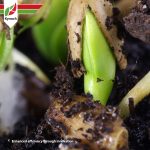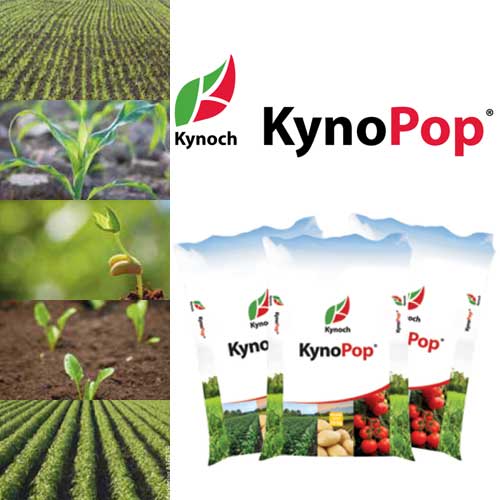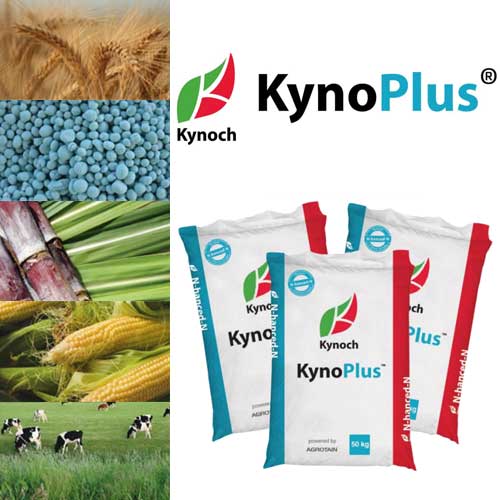
Thriving as a Small-Scale Farmer in South Africa
23/08/2024
Soil health: a multi-perspective conundrum
03/09/2024For plants to thrive, the soil solution must be balanced in terms of nutrient concentration as well as pH and moisture levels, says Hentie Cilliers, optimiser specialist at Kynoch.
When discussing crop nutrition, the focus is often on soil nutrient levels. However, many processes and interactions occur in the soil solution, which is a dynamic mixture of water, dissolved nutrients, minerals and organic compounds present in the soil’s pore spaces.
The soil solution plays a crucial role in delivering nutrients to plant roots, supporting biochemical processes and facilitating the uptake of essential elements. Key factors affecting the soil solution include:
SOIL PH
The soil pH influences nutrient availability and mineral solubility. Outside the optimal range, certain nutrients become less soluble while others may become toxic. Acidic soils reduce the availability of nutrients like phosphorus, calcium and magnesium while increasing the solubility of toxic metals like aluminium and manganese. Alkaline soils limit the availability of essential micronutrients like iron, zinc, and manganese.
SOIL TEXTURE
The proportion of sand, silt and clay particles affects water and nutrient retention. Sandy soils have larger particles and fewer binding sites, which leads to poor nutrient retention and a higher risk of nutrient leaching.
Clay soils have fine particles and high nutrient-holding capacity but can sometimes retain nutrients too tightly, limiting their availability.
CATION EXCHANGE CAPACITY
Cation exchange capacity (CEC) is a measure of a soil’s ability to hold and exchange positively charged ions (cations) like potassium, calcium and magnesium. Soils with a higher CEC (typically clay or those rich in organic matter) can hold more nutrients, making them available to plants over time. Low-CEC soils (usually sandy soils) have a lower nutrient-holding capacity, leading to more frequent nutrient deficiencies.
SOIL STRUCTURE
Well-structured soil has better aeration and allows for easier root penetration, facilitating nutrient access. Compacted soil, on the other hand, can restrict root expansion and reduce nutrient uptake.
ORGANIC MATTER
Organic matter, including compost and decomposed plant material, enriches the soil solution by increasing nutrient availability and improving soil structure.
As organic matter decomposes, it releases nutrients into the soil solution and enhances the soil’s ability to retain water and nutrients, which benefits plant roots.
SOIL MOISTURE
Water is the medium through which nutrients are dissolved and transported to plant roots. Excess moisture can cause the leaching of nutrients, especially nitrogen. Lack of moisture reduces the solubility and movement of nutrients, limiting plant uptake.
SOIL MICROBIAL ACTIVITY
Micro-organisms in the soil play a crucial role in nutrient cycling. They break down organic matter, fix atmospheric nitrogen, and solubilise phosphorus and other nutrients, making them available to plants. Healthy soils with active microbial communities promote faster nutrient cycling and greater nutrient availability in the soil solution.
SOIL COMPACTION
Compacted soil has reduced pore spaces, limiting water infiltration, air movement, and root penetration. This can impede the movement of nutrients in the soil solution and restrict the plants’ access to them.
TEMPERATURE
Warmer temperatures generally increase microbial activity, speeding up nutrient cycling and availability. Cold soil slows down microbial processes and reduces nutrient availability, especially nitrogen mineralisation.
NUTRIENT INTERACTIONS
Fertilisation aspects – such as frequency of application, nutrient concentration, chemical form, and nutrient solubility – need to be considered. Enhancing the soil solution can significantly improve nutrient availability, ensuring plants have access to the essential elements they need for optimal growth and productivity.
Email info@kynoch.co.za, phone
011 317 2000, or visit kynoch.co.za
Kynoch – Enhanced efficiency through innovation







.png?v=1594369838025?v=1594369838026)